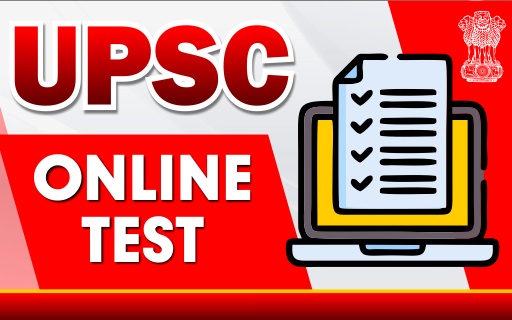The Union Public Service Commission (UPSC) conducts various examinations to recruit candidates for civil services and other government positions in India. The transition from traditional pen-and-paper exams to online tests has both advantages and disadvantages. Here are some pros and cons of the UPSC online test:
Pros:
1.Accessibility:
Online tests make the examination process more accessible to candidates from remote areas, as they don’t have to travel long distances to reach exam centers.
2.Immediate Results:
With online tests, results can be processed quickly, allowing candidates to know their performance almost immediately after completing the exam.
3.Reduced Paper Usage:
Online tests contribute to environmental sustainability by significantly reducing the consumption of paper and other resources associated with traditional pen-and-paper exams.
4.Randomization of Questions:
Online exams can easily randomize questions, reducing the chances of cheating or sharing answers among candidates.
5.Adaptive Testing:
The online format allows for adaptive testing, where the difficulty of questions can be adjusted based on the candidate’s performance, providing a more accurate assessment of their abilities.
6.Enhanced Security Measures:
Online exams can incorporate advanced security features, such as biometric verification and secure browsing, to prevent malpractices and ensure the integrity of the examination process.
Cons:
1.Technological Challenges:
Not all candidates may be familiar or comfortable with the use of technology, leading to potential issues related to navigation, technical glitches, or internet connectivity problems.
2.Infrastructure Requirements:
Candidates need access to a computer or a reliable device with a stable internet connection. This may pose challenges for individuals in remote or economically disadvantaged areas.
3.Security Concerns:
Despite advanced security measures, there is still a risk of hacking or other cyber threats, which could compromise the integrity of the examination.
4.Limited Exposure to Computer-Based Testing:
Some candidates may not be accustomed to computer-based testing, and their lack of familiarity with the online format could impact their performance negatively.
5.Digital Divide:
The move to online testing may exacerbate the digital divide, creating disparities in access to educational resources and opportunities for candidates from different socio-economic backgrounds.
6.Technical Issues during the Exam:
Technical problems such as system crashes, power outages, or internet disruptions during the exam can negatively impact a candidate’s performance and create an uneven playing field.
In conclusion, while the transition to online testing by UPSC has several advantages, there are also challenges that need to be addressed to ensure a fair and accessible examination process for all candidates. The focus should be on providing necessary support and infrastructure to mitigate the potential drawbacks of online testing.
Reference Link(OriginallyPosted): https://eliteias.medium.com/exploring-the-pros-and-cons-of-the-upsc-online-test-9b2e2195ae3c


No comments yet